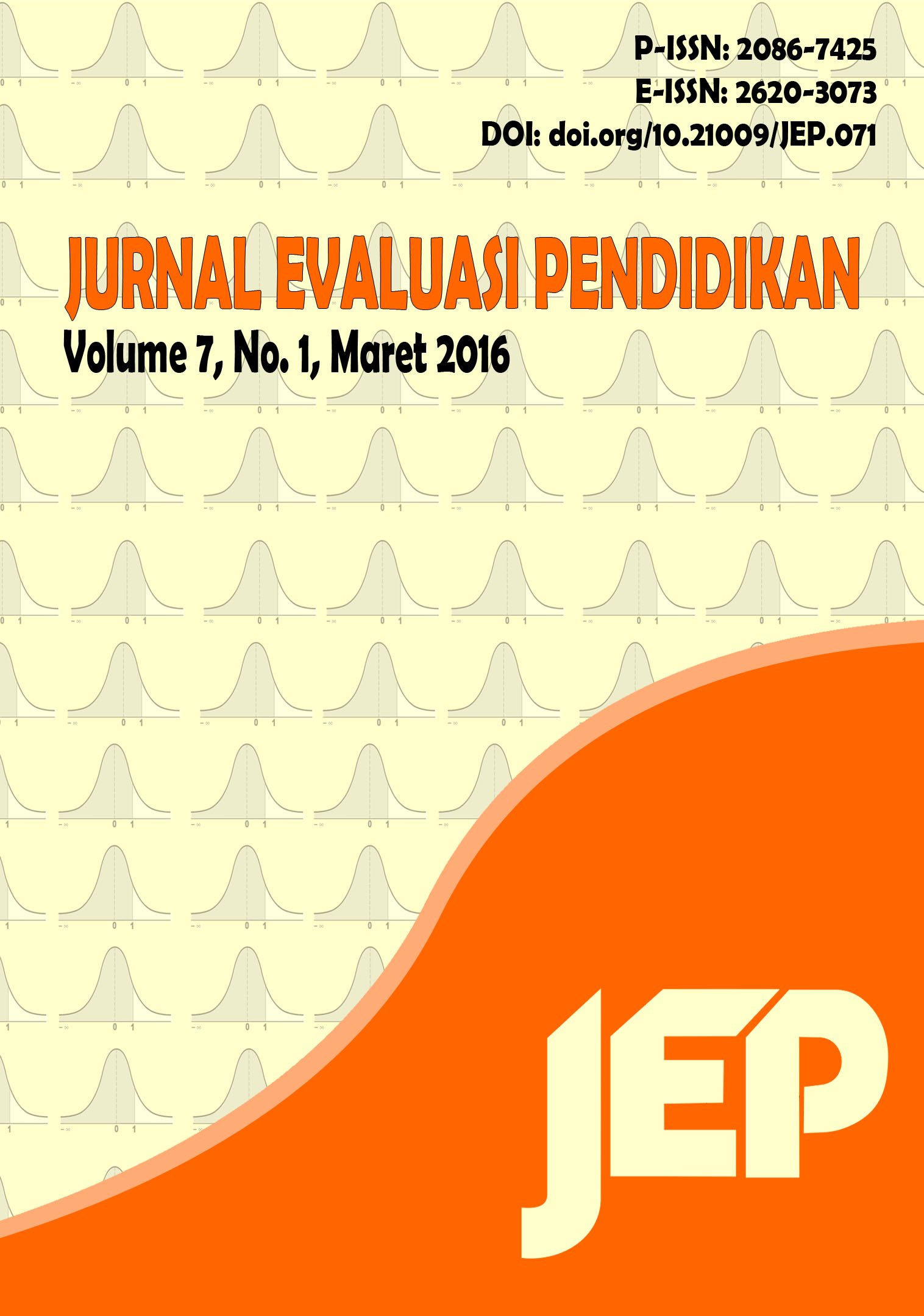SENSITIVITAS MENDETEKSI BIAS BUTIR METODE UJI BEDA TARAF SUKAR, KHI-KUADRAT LORD, DAN DISTRIBUSI SAMPLING EMPIRIS
DOI:
https://doi.org/10.21009/JEP.071.05Keywords:
Formative assessment, instructional approach, student achievement mathematics, numerical talentAbstract
The objective of this study was to determine the effect of formative assessment and instructional approach toward the student’s mathematics achievement upon controlling numerical talent. This study was a quasi-experimental study with 186 students as the samples which were selected by using multistage random sampling. This research adopted the 2 X 2 factorial experimental designs. The data from this study is analyzed by using analysis of covariance (ANCOVA). The results, after controlling the students’ numerical talent, are as follows: the mathematics achievement of the student that participate in contextual teaching and learning approach is better than the students that participate in the conventional approach, the mathematics achievements of students that were given performance assessment are better than the students given conventional assessment. Further, there is an interaction effect of instructional approach and formative assessment towards the student’s mathematics achievement. The group of students taught by using the contextual teaching and learning approach are more suitable to be assigned with performance assessment, where as the group of students taught by the conventional approach are more suitable to be assigned with conventional assessment. Based on the findings of the research, it is recommended to the teachers of the junior high schools that in improving the student’s mathematics achievement, the teachers need to use instructional approach and formative assessment appropriately and correctly.








